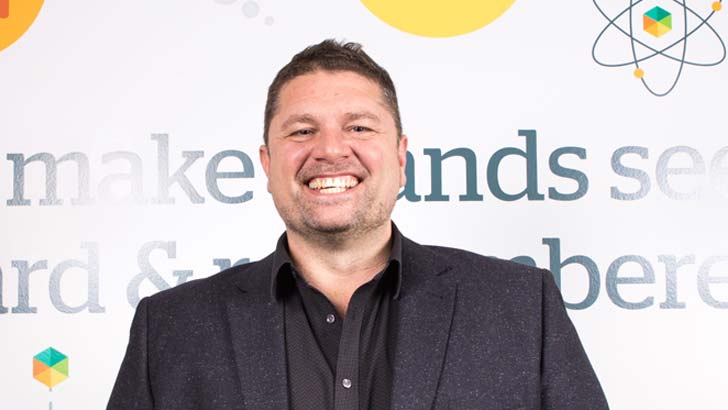Making It Work: From marketing to manufacturing masks
By Julia Newbould
Australians have had to adapt after their livelihoods took a hit from government restrictions introduced to curb the spread of coronavirus. In this series called Making It Work, we look at how individuals and businesses have pivoted to stay afloat during the crisis.
Face masks and hand sanitisers have been in high demand throughout the coronavirus crisis.
As lockdowns cut off international supply chains, Australians began turning to local companies like Zinc Group which had quickly pivoted its business from producing marketing and merchandise to manufacturing.
Through its personal protective equipment (PPE) production, Zinc bagged two of the world's largest retailers - Amazon and Walmart - as clients.
Until COVID-19, the Australian-based marketing business specialised in communications, merchandising and promotional products. It has offices in 14 countries and clients including ANZ, Cadbury and Carlton Draught.
The company produced promotional gear such as branded tennis balls and apparel for the Australian Open.
Under pressure
When businesses started closing in March, Zinc was affected dramatically.
"A lot of clients stopped spending, and the core of our business dropped 80% as everyone tried to conserve cash to understand the impacts. No one knew where this thing was going or how long it would last. Clients responded conservatively which meant everything stopped," Cleary says.
Cinemas, a significant part of the business, were closed, while client Jetstar stopped spending overnight.
"It meant our business had to change quickly. And rapidly we took inspiration from an ex-director of the WHO that we'd seen lead the handling of outbreaks of Ebola. His one take was speed versus perfection," says Cleary.
"We focused on move quickly and do something. Doing anything is better than nothing and having paralysis by analysis was meaningless.
"We had to do something unnatural and move quickly without having the data and information to make decisions. We took the idea of speed versus inaction to heart."
Cleary says it was also important to continue to be transparent with the 70 staff in Sydney and Melbourne and 280 around the world.
"This works in the good times and in the bad times, it builds trust which is the glue that binds us together.
"During the COVID lockdown, we looked at financials and what the impacts would be, what we thought would happen, and how it would affect the business from an income and cashflow perspective.
"It was significant and it was a tsunami - we told the team that based on current cashflow that 10-15% of the team that wouldn't be here in two months unless we took a 10% pay cut.
"The guys were magnificent, it took 24 hours for them to make the decision to protect each other and look after each other instead of focusing on the individual," Cleary says.
"When we create value in the business we share it and likewise when value isn't there we share it as well," Cleary says.
Adapting to change
"Until Christmas we'd had our most successful period ever," Cleary says. "We'd exceeded all growth forecasts. It certainly turned around quickly," he says.
"It's been extraordinary how business have responded and the resilience of people - as Australians we punch above our weight."
The Zinc team started working remotely, while staff without clients were reassigned.
"We looked at their competencies and skill sets and how they could be refocused to work on what clients need and that's when we focused on producing personal protective equipment.
"We had the sourcing, quality control and supply chain management, product development experience and marrying that with our marketing experience we understood our clients' needs and requirements."
The adaptive culture of Zinc, plus having a team in China, mean the company was able to pivot quickly.
It started producing a range of facemasks, goggles, sanitiser, bacterial wipes, and gowns for new and existing clients.
"We had a range of corporate clients using them including government and major retailers."
Amazon and Walmart became customers, while in Australia the main clients remain in the finance and hospitality sectors.
In the first month business was down 80%, but it recovered to about 50-60% as people became used to the new normal, Cleary says.
"We had some clients in the grocery space where sales went through the roof and so we became quite busy."
Zinc was then able to pick up the rest of the lost income through PPE sales. "We exceeded previous sales (overall).
"The team has been extraordinary."
The future
"We've always produced some PPE but not to the same extent. It was extraordinary at how quickly we had created a new division with Zinc Protect," Cleary says.
"It's a new world order so we will continue with this new part of the business as our clients continue to demand it and there's no going back."
While there's a need for protection and sanitisation, Zinc will continue to develop its reach, Cleary says.
Zinc Group was midway through an acquisition when COVID hit, and plans to proceed.
Get stories like this in our newsletters.



